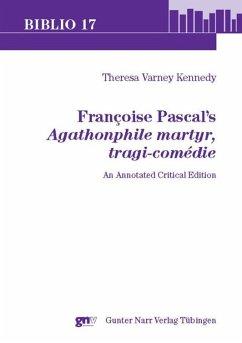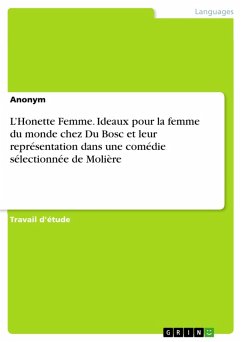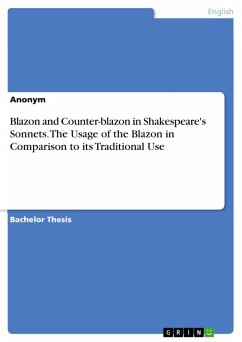Written at the end of the Counter Reformation, Francoise Pascal¿s first play, Agathonphie martyr, tragi-comedie (1655), is an important transitional piece, marking the passage from religious drama as a moralizing device to that of a diversion, prompted by the growing influence of the société mondaine in Lyon. In her introduction, Kennedy examines how this play is characterized by a unique merging of two genres: the tragicomedy and the martyr play. This play also merits our attention in terms of new female characterization. Kenedy demonstrates how Pascal¿s female martyr Triphine diverges from the traditionally "coldhearted" female martyr, as an independent thinker who speaks her heart, proclaiming the virtues of "constant" love.
Dieser Download kann aus rechtlichen Gründen nur mit Rechnungsadresse in A, B, BG, CY, CZ, D, DK, EW, E, FIN, F, GR, H, IRL, I, LT, L, LR, M, NL, PL, P, R, S, SLO, SK ausgeliefert werden.









